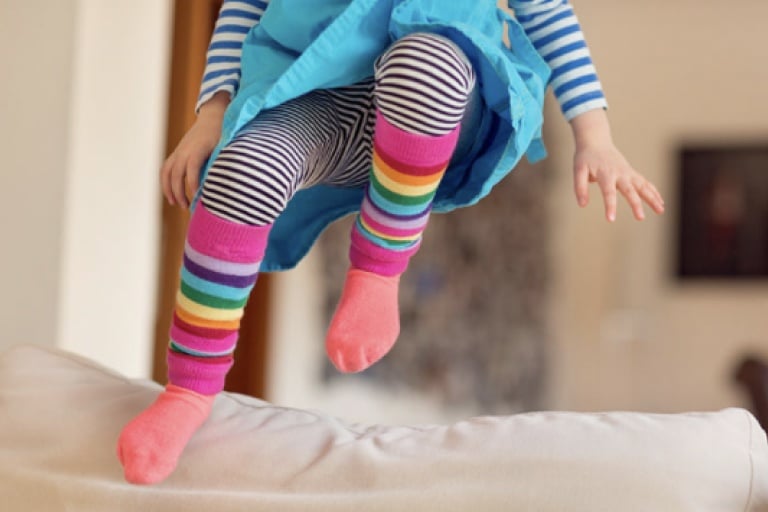
One mom is concerned because her 8-year-old son wets the bed at home but not during his extended stays with his grandmother who lives out of state. Another wonders why her 10-year-old stepson wets the bed when he stays at her house but not at his mother’s house. Is there a reason a kid wakes up realizing “I peed in my bed” in one home but not another? According to Dr. David Fay, a family physician and associate director of the Waukesha Family Practice Residency Program in Waukesha, WI, bedwetting (or nighttime wetting) in one home but not another is fairly common. And managing the issue requires communication and cooperation among all parties.
Potential Reasons
Children who wet the bed in one home but not another can be divided into two basic categories:
- Children who have wet the bed all along and have already been evaluated, undergone treatment, shown some improvement and begun wetting again.
- Children who have never wet the bed and have started to do so in one home or another.
In the second scenario, Dr. Fay says the reasons could be emotionally driven. That means the child is so upset by whatever is going on in their life that one manifestation of the upset is nighttime wetting.
Quality of sleep may also play a role in the situation. Shelly Morris, director of the Enuresis Clinic of America, says that in a household where a child doesn’t sleep as well or as soundly they may not wet the bed.
“It’s the same situation as when an adult is in a strange bed, such as a hotel room,” says Morris. “When you’re in a different place, you just don’t sleep as well. If a child doesn’t get into that deep sleep, he may wake more easily to go to the bathroom.”
Morris explains that this is often the reason a kid pees pants — pajamas pants, that is — during the night at home but not at a sleepover or during the first few days of camp. It can also apply, however, to a child who visits a relative for overnight stays or who splits their time between divorced or separated parents.
The keys to solving the problem are cooperation, communication and consistency between the two households. When the two parties can communicate and are willing to work together, there are a number of strategies for managing nighttime wetting. And be sure to include your child in conversations about bedwetting too. Whether they ask “Why do I wet the bed?” or simply state “I peed my bed,” they are likely to have questions – and they may be feeling emotions like confusion, shame or embarrassment.
Constructive Communication
Be sure to get your child’s point of view. If they think the bedwetting is not a problem and are comfortable wearing Goodnites® NightTime Underwear or using Goodnites® Bed Mats, then it’s best to just deal with it very matter-of-factly. Habits such as making sure your child uses the bathroom before bedtime and even taking them there one last time before you go to bed may help prevent possible accidents.
These articles are not a substitute for medical advice, consult your doctor as needed.








